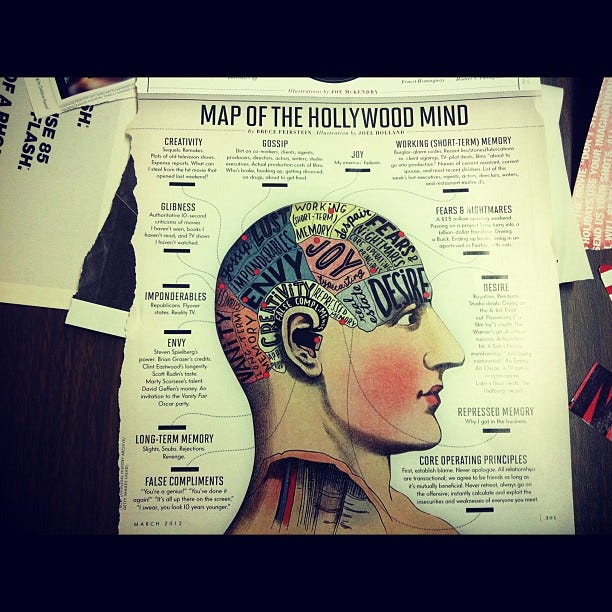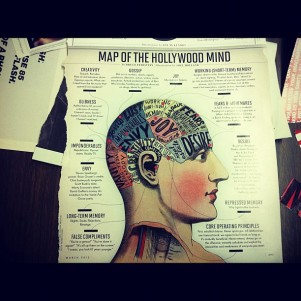People of the digital era, including all those on social media, provide enough substantial evidence to assert that people need to be relevant in the crowd. From photos of latest meals eaten along side Spike Lee to roadside accidents that show proof of what a crumby day you have had to all the forgettable selfies, humans tend to behave in ways that show their urgent desire to inform others about themselves. Artists tend to do this in ways consistent with their art work. If you got a brand, you have to message it. If you have got a class, people have got to know about it. If you have a performance or an exhibit, you would expect others to come so you promote it. This is not narcissism. This is marketing and it is relevant so do it, unabashedly. What I want to pinpoint is that inner voice that could exist in you that might say:“Am I one of those artists who believe I am so relevant but am really narcissistic?”
The Relevant Artist
I use the term ‘relevant artists’ in a quasi-snarky and less diagnostic way to describe how certain artists seem to be in a bubble characterized by self-focus, yet it works for them. Relevant artists are prolific or, at least, send a message to others that they are. They give off an impression of their importance and desire to create art that will, in fact, change the world including all people, plants and animals. Relevant artists understand that something big lives inside of them and they have to get it out in the world, at all costs. They can be elegant, articulate, commanding, demanding and/or convincing in their quest.
Relevant artists are intriguing because they get stuff done. They toil away diligently, talk a lot about themselves and do not ask as many questions of others as they should. They are keenly aware of when the listener is listening to them. They are opportunistic and know how to jump on chance. This is important, in fact, as the relevant artists seeks resources for their own survival and even others.
A relevant artist is not necessarily a narcissist. There is a critical breaking point to narcissism. Is the relevant artist on its way to being narcissistic or at least presenting with narcissistic attributes? Absolutely. 
The Narcissist
A narcissist is one who presents with a grandiose sense of self-importance, requires excessive admiration, lacks empathy, exploits others, and so on. A narcissist diagnosed with narcissistic personality disorder (NPD) is a result of a set of enduring patterns described in the Diagnostic Statistical Manual of Mental Disorders (DSM-V, 2015).
Let me be clear: based on this description, all of us at specific times have an aspect of narcissism that is important to some aspects of survival. A tinge of narcissism could help one shoot for their personal/professional goals and weather the storm of failures that come with trying. It might inspire one to care just a bit more about their public appearance or their creative efforts by taking people’s commentary with less significance. Good-hearted and even normal functioning people, including the relevant artist, might have some narcissism at times and still maintain successful relationships with others.
There are two differences between a relevant artist and a narcissist artist. A relevant artist will take people into consideration and will learn from others. A narcissist cannot be bothered. Instead, relationships of all kinds and in a variety of situations are deeply impaired because of self-absorption. Narcissists generally suffer from being emotionally vulnerable and mask it with defenses that manifest into control, anger, manipulation, lack of empathy. Narcissism is thrown around quite a bit both clinically and in the social world where people use WebMD to diagnose themselves or others. May a sad truth be stated: To experience narcissism is deeply painful and impacts many aspects of one’s life in ways that prevent normal functioning relationships to happen.
Am I a Narcissist Artist?
It is obviously challenging to be assumptive of how narcissism presents in all people, including artists of all stripes. What can be said is that narcissism is tolerated in the art world because people are conditioned to accept big egos being expressed as artistic vision or the God-like aspects of someone’s unique creative talents to which others should bow. Hollywood, art school and social media all promote these traits. Given the prominence, here are some ways to assess if you have some narcissist artist traits:
1.) People Tell You: It could be that simple and it is. Friends and family members may throw hints your way that indicate you are a bit of a narcissist. They may be blunt enough to use the word narcissist or in other cases they may use innuendoes. For example, statements like you are self-absorbed or other phrases that gesture at your self-focus and inability to care for others make it an issue. It might also be presented in your audience’s response to your work where terms like indulgent or excessive help exercise the concept that your art is about you in a bad way. Also, colleagues might point it out behind your back by saying you are an annoying person to work with because you take all the credit, lack communication and show proof that it is always about you, your pursuits and not others.
2.) People Separate From You: Friends, family members, colleagues and even your beloved audience all have limits to the narcissist artist. Over time they get a sense that your narcissism and over-extended-desire-to-be-the-relevant-artist has eaten you from the inside out and have taken away your best qualities, that is, being a person who cares for others in equal balance with yourself. It makes you a pain to be around because it is always about you and less about others. People begin to feel uncared for so they stop calling, texting or messaging you. They do not ask you out or they bluntly state that they are taking a time out from you. Some may even divorce you.
3.) You Lack Empathy: It is hard to feel empathy for anyone, including yourself. It is a huge struggle and you may not even know it is happening. One of the most critical human attributes is the ability to experience empathy for others. It appears that somewhere in your increasing self focus, you are unable to feel and express an empathic regard for others. It could be that in your own struggle to build your artistic empire, you have built up enough intricate defenses to not experience affect between yourself and other people. As a result, you suffer and your art will suffer because it will not have the same emotional impact on others lives.
If you feel like you are someone that suffers from narcissism, you know this is the case because your relationships have been impaired and your art is now suffering. That little voice in you is also intuition telling you that, although it is cool to be relevant, your approach to being an artist has taken a turn for the worst. Do you want your relationships to feel stronger and more collaborative? Do you want your art to have meaning in other people’s lives? If you say ‘yes’ to these, that is also your intuition telling you it is time for positive change.


Sorry, comments are closed for this post.